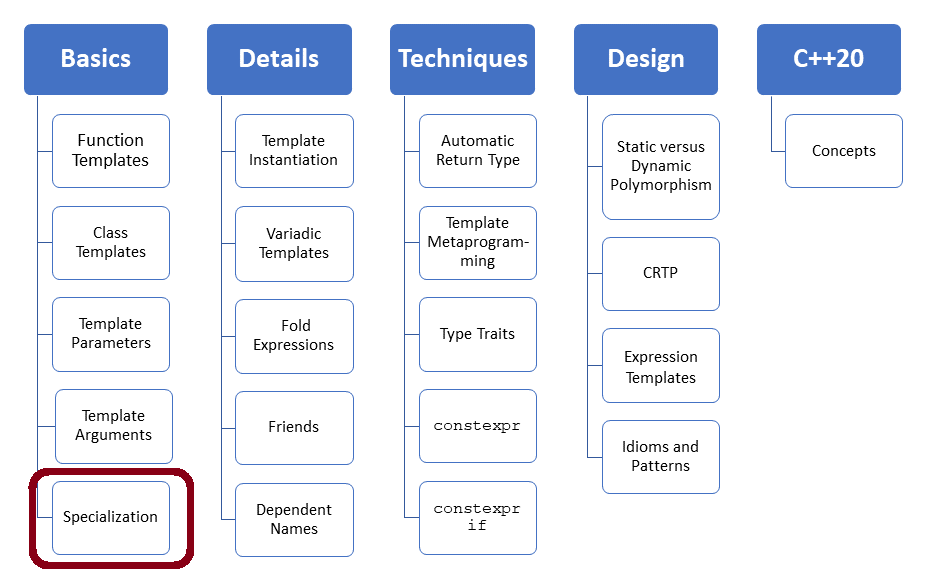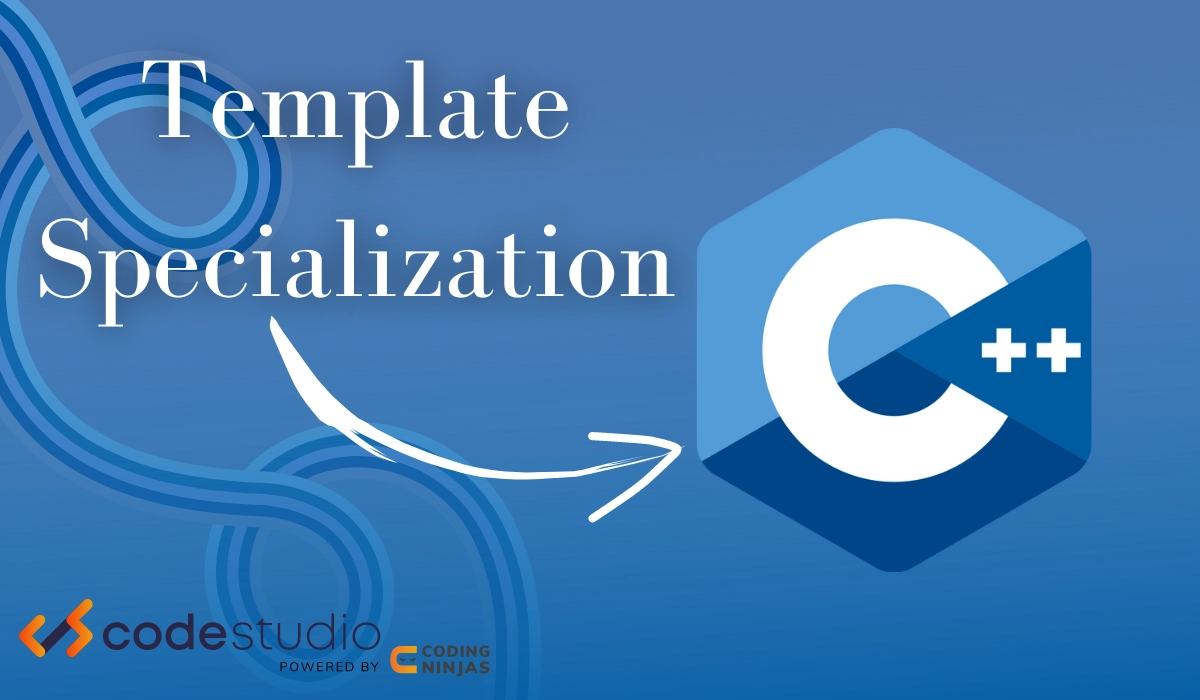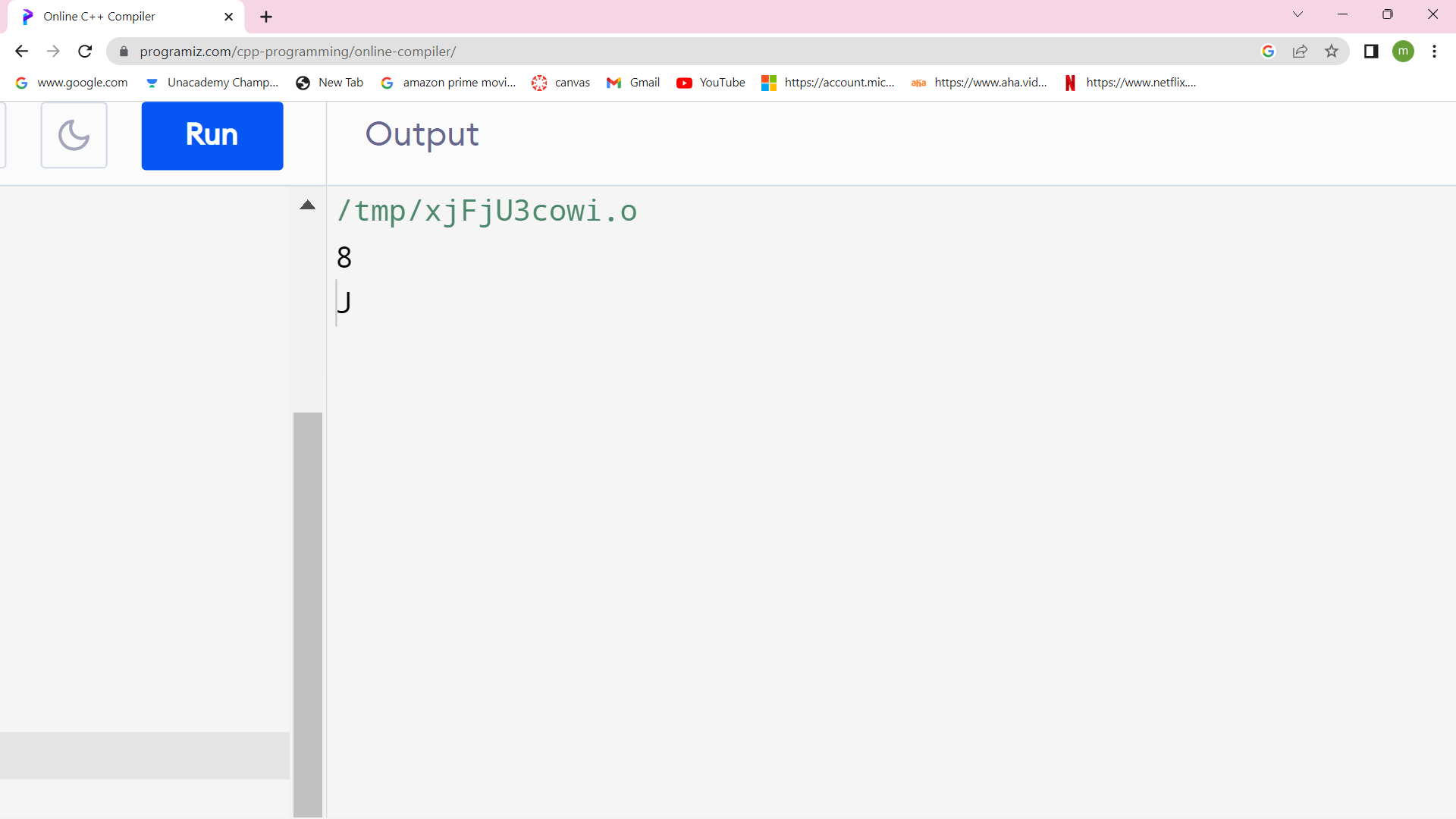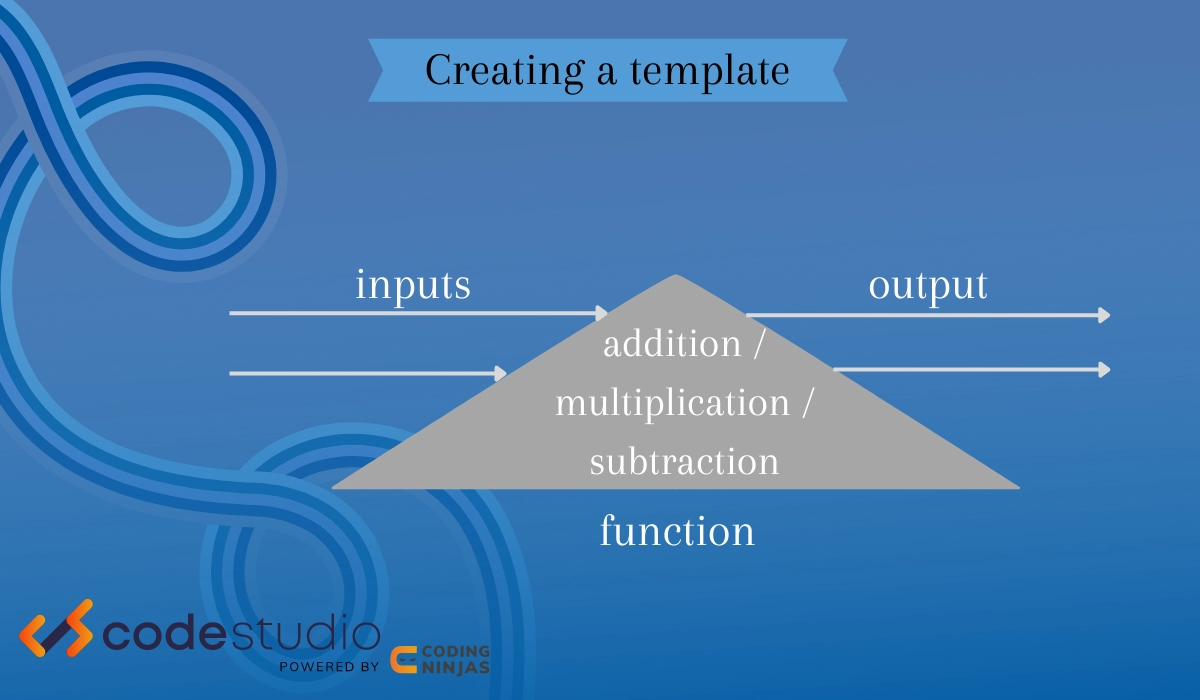Template Specialization
Template Specialization - For our challenge above, the ideal solution would be to have our overloaded print function work with staticarray of type char, but leave the length. Web template parameters and arguments allow templates to be parameterized. The first function is the default case — the code to be used when t is anything other than int or std::string : This declaration enables you to define a different function for double variables. The article starts with an introduction to c++. The result is a template parameterized on the remaining types. Web partial specialization may be declared in any scope where its primary template may be defined (which may be different from the scope where the primary template is defined; Web with a function template, you can define special behavior for a specific type by providing an explicit specialization (override) of the function template for that type. A class stack can be created that can be used as a stack of any data type. Here is an example, that appends a type to a tuple given a template sfinae struct as a template argument: For example, sort () can be written and used to sort any data type items. Specialization of member function of template class is allowed even if function is not declared as template. We write code once and use it for any data type including user defined data types. Web partial template specialization allows us to specialize classes (but not individual functions!) where some, but not all, of the template parameters have been explicitly defined. For instance, while most vectors might be implemented as arrays of the given type, you might decide to save some memory and implement vectors of bools as a vector of integers with each bit corresponding to one. #include myvector.h extern template class myvector; In such a nested declaration, some of the levels may remain unspecialized (except that it can't specialize a class member template if its enclosing class is unspecialized). Web in an explicit specialization for such a member, there's a template<> for every enclosing class template that is explicitly specialized. Web in c++ primer plus (2001, czech translation) i have found these different template specialization syntax: Web in c++, template specialization enables us to define specialized versions of templates for some specific argument patterns. Web template parameters and arguments allow templates to be parameterized. Web in c++, template specialization enables us to define specialized versions of templates for some specific argument patterns. Web with a function template, you can define special behavior for a specific type by providing an explicit specialization (override) of the function template for that type. The result is a template parameterized on the remaining types. Web in an explicit specialization for such a member, there's a template<> for every enclosing class template that is explicitly specialized. Function template declaration declares a function template. Web the idea of template specialization is to override the default template implementation to handle a particular type in a different way. Web if you want to use provide a template struct as a template argument (with intent to use it inside) without specializing it: Template specialization defines an existing template for a specific type. Once we have a template class or function, we can create specialized versions of that template. Void foo(myvector& v) { // use the vector in here. For example, you might wish to define a code path to be executed only if the type argument is a pointer, or a std::wstring, or a type derived from a particular base class. Template <> int foo::bar() { return 4; In this article, we will discuss the partial template specialization. In some cases, it isn't possible or desirable for a template to define exactly the same code for any type. Specialization of member function of template class is allowed even if function is not declared as template. For example, you might wish to define a code path to be executed only if the type argument is a pointer, or a. #include myvector.h extern template class myvector; For class templates, the arguments are either explicitly provided, deduced from the initializer, (since c++17) or defaulted. The first function is the default case — the code to be used when t is anything other than int or std::string : Void foo(myvector& v) { // use the vector in here. Here is an example,. It is of two types: Web explicit specialization may be declared in any scope where its primary template may be defined (which may be different from the scope where the primary template is defined; Web with a function template, you can define special behavior for a specific type by providing an explicit specialization (override) of the function template for that. The first function is the default case — the code to be used when t is anything other than int or std::string : Web a template specialization can be explicitly declared as a way to suppress multiple instantiations. Web template in c++ is a feature. #include myvector.h extern template class myvector; Web with a function template, you can define special. Void foo(myvector& v) { // use the vector in here. Web with a function template, you can define special behavior for a specific type by providing an explicit specialization (override) of the function template for that type. The result is a template parameterized on the remaining types. #include myvector.h extern template class myvector; Once we have a template class or. Function template declaration declares a function template. For instance, while most vectors might be implemented as arrays of the given type, you might decide to save some memory and implement vectors of bools as a vector of integers with each bit corresponding to one. Class template specialization allows us to specialize a template class for a particular data type (or. In this article, we will discuss the partial template specialization in c++ and how it is different from the full template specialization. Web in an explicit specialization for such a member, there's a template<> for every enclosing class template that is explicitly specialized. Template<> void myswap(double a, double b); In some cases, it isn't possible or desirable for a template. We write code once and use it for any data type including user defined data types. Web in an explicit specialization for such a member, there's a template<> for every enclosing class template that is explicitly specialized. Web when template arguments are provided, or, for function and class (since c++17) templates only, deduced, they are substituted for the template parameters. Web template parameters and arguments allow templates to be parameterized. For example, sort () can be written and used to sort any data type items. In some cases, it isn't possible or desirable for a template to define exactly the same code for any type. Web when template arguments are provided, or, for function and class (since c++17) templates only,. Web in an explicit specialization for such a member, there's a template<> for every enclosing class template that is explicitly specialized. Web when template arguments are provided, or, for function and class (since c++17) templates only, deduced, they are substituted for the template parameters to obtain a specialization of the template, that is, a specific type or a specific function lvalue. Web in c++ primer plus (2001, czech translation) i have found these different template specialization syntax: Template <> int foo::bar() { return 8; Web partial specialization may be declared in any scope where its primary template may be defined (which may be different from the scope where the primary template is defined; A class stack can be created that can be used as a stack of any data type. Web in c++, template specialization enables us to define specialized versions of templates for some specific argument patterns. Web partial template specialization allows us to specialize classes (but not individual functions!) where some, but not all, of the template parameters have been explicitly defined. Specialization of member function of template class is allowed even if function is not declared as template. In such a nested declaration, some of the levels may remain unspecialized (except that it can't specialize a class member template if its enclosing class is unspecialized). Web if you want to use provide a template struct as a template argument (with intent to use it inside) without specializing it: Web with a function template, you can define special behavior for a specific type by providing an explicit specialization (override) of the function template for that type. Web template in c++ is a feature. Web explicit specialization may be declared in any scope where its primary template may be defined (which may be different from the scope where the primary template is defined; When all of the template parameters are specialized, it is called a full specialization. The result is a template parameterized on the remaining types.Word Template Requirement specialization (6page Word document) Flevy
Template Specialization MC++ BLOG
Template Function Specialization
Template Specialization
C++ Template Specialization
Template specialization in C++ Coding Ninjas
C++ Template Specialization javatpoint
Template Function Specialization
Template specialization in C++ Coding Ninjas
Specialization template
In Some Cases, It Isn't Possible Or Desirable For A Template To Define Exactly The Same Code For Any Type.
This Declaration Enables You To Define A Different Function For Double Variables.
Template Specialization Defines An Existing Template For A Specific Type.
Web One Way To Implement The Above Is Via Template Specialization.
Related Post:








